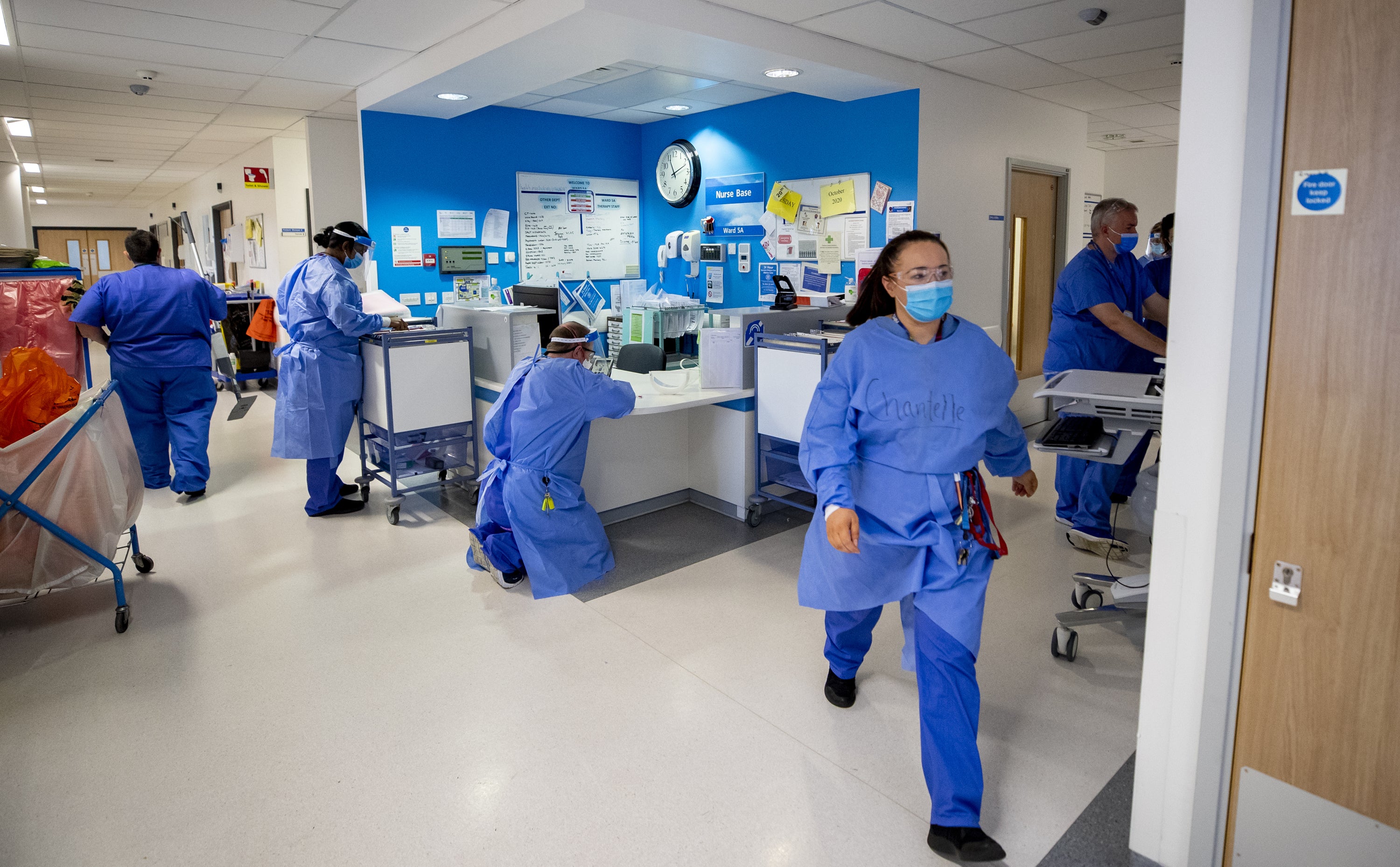NHS cancer care’s ‘culture of over treatment’ is wasting time and money, report reveals
An All-Party Parliamentary Group paper released on Tuesday on minimally invasive cancer treatments (MICTs) found only 10 per cent of cancer patients are offered non-invasive treatments

Your support helps us to tell the story
From reproductive rights to climate change to Big Tech, The Independent is on the ground when the story is developing. Whether it's investigating the financials of Elon Musk's pro-Trump PAC or producing our latest documentary, 'The A Word', which shines a light on the American women fighting for reproductive rights, we know how important it is to parse out the facts from the messaging.
At such a critical moment in US history, we need reporters on the ground. Your donation allows us to keep sending journalists to speak to both sides of the story.
The Independent is trusted by Americans across the entire political spectrum. And unlike many other quality news outlets, we choose not to lock Americans out of our reporting and analysis with paywalls. We believe quality journalism should be available to everyone, paid for by those who can afford it.
Your support makes all the difference.The NHS is wasting time and money due to a ‘culture of overtreatment’ in cancer care, a report has revealed.
An All-Party Parliamentary Group paper released on Tuesday on minimally invasive cancer treatments (MICTs) found only 10 per cent of cancer patients are offered non-invasive treatments.
This is despite many of these treatments being recommended by the National Institute for Health and Care Excellence (NICE).
And many doctors and patients remain in the dark about some of the newer treatments due to ‘a severe lack of education’ .
The APPG, which is made up of different political parties and peers, was formed to drive awareness of Minimally Invasive Cancer Therapies - proven cancer treatments that provide similar outcomes to cancer surgery but are more targeted and less invasive than traditional surgery.
Paul Sayer, founder of charity Prost8, which launched its ‘ONE in EIGHT’ campaign to help men with prostate cancer get better access to minimally invasive treatment, said: “The report has identified a culture of overtreatment even when it’s not the best or safest option.
“Many treatment options are not public knowledge and medical practitioners are not given sufficient evidence to refer patients to treatments outside of their own hospitals.
“This severe lack of awareness and education can lead to unnecessarily invasive and lifestyle-impacting outcomes for patients, with a lack of available equipment further hindering this issue.”
Prost8 is campaigning to make minimally invasive treatment options available to men with a low to intermediate prostate cancer diagnosis who are eligible.
The charity is raising funds to provide up to six fully functional focal therapy suites in hospitals across the UK to give better access to the one in eight men diagnosed with prostate cancer in their lifetime.
Prostate cancer is particularly receptive to focal treatments and the lifestyle outcomes are considerably better than traditional invasive options including having little to no impact on urinary incontinence and erectile dysfunction.
Paul Sayer founded the charity after he sought an alternative to surgery and received minimally invasive treatment himself in 2018.
He added: “It is the job of the NHS to provide the best options for patients but sadly it’s falling to charities to provide the funds for these vital treatment options.
“Every day we are overwhelmed by phone calls from men who are desperately searching for less life-limiting options than traditional surgery.
“Invasive treatments also mean quicker recovery, less hospital time, less cost at the point of delivery for the NHS and lower infection risks than with more invasive treatments. Not to mention far less side effects.
“Unless things change, every year 12,000 men in this country could be over treated for prostate cancer leaving them stripped of their manhood and self-respect.”
MP Anna Firth, Patron of Prost8, said: “I am putting my full support behind the ONE in EIGHT campaign after losing my own father to prostate cancer in 2020 and agree that the APPG report is an important tool in highlighting the issues of accessing better cancer treatments.”
There are currently only three hospitals in the UK that offer MICTs for prostate cancer, making it a ‘postcode lottery’ as to whether cancer patients are eligible.
Many men who live outside of London are less likely to be offered the treatment because their clinicians may not be aware of these centres.
Aside from a lack of available treatment options, education and awareness, the APPG report also claims the NHS system and infrastructure are not set up to put patients at the heart of treatment.
It warns patients are forced to travel long distances, in poor health, to access MICTs as there are too few specialist interventional oncology centres.
The report recommends the NHS website includes information on all available cancer interventions, referencing NICE recommendations where appropriate with patients advised to read all of the information to help them understand side-effects.
There are around 375,000 new cancer cases in the UK, which is around 1,000 every day.
Cancer is the UK’s biggest killer, with 166,000 cancer deaths in the UK each year.
Visit Prost8.org.uk/1in8 to donate and find out more about non-invasive options available.





Join our commenting forum
Join thought-provoking conversations, follow other Independent readers and see their replies
Comments